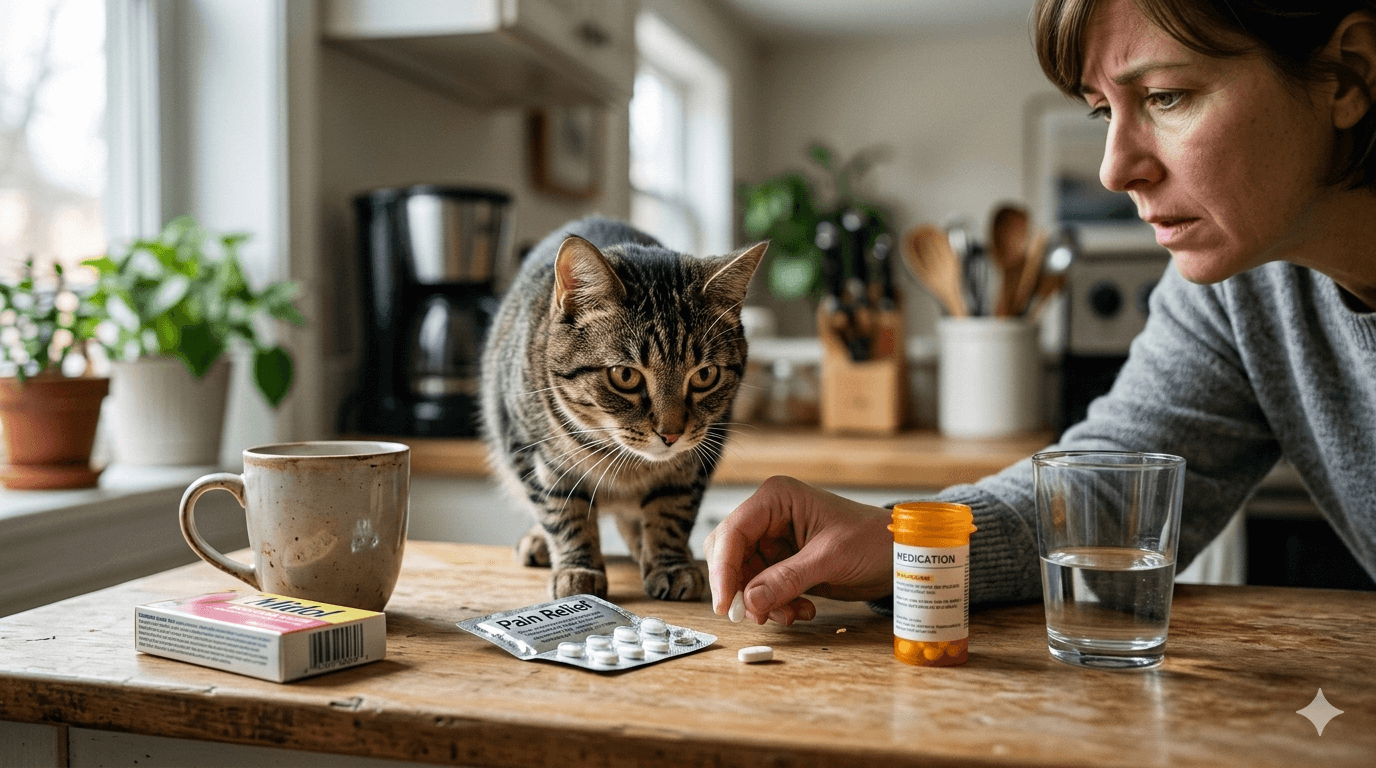Cat Antibiotics Without Veterinary Guidance: What You Need to Know
When your cat falls ill, it’s natural to want to act quickly to ease their discomfort. However, administering antibiotics without veterinary guidance can pose significant risks to your feline friend’s health. While antibiotics are powerful tools for treating bacterial infections, improper use can lead to complications such as antibiotic resistance, incorrect dosing, or even worsening of the condition. Understanding the importance of professional oversight and learning safe practices for managing your cat’s health is crucial. In this blog post, we’ll explore the risks, alternatives, and expert advice on how to handle situations where antibiotics may be needed—without compromising your cat’s well-being.
Risks of Using Cat Antibiotics Without Veterinary Guidance
Administering antibiotics without consulting a veterinarian can have serious consequences for your cat’s health. Here are some key risks to consider before taking matters into your own hands.
Antibiotic Resistance:
Misuse of antibiotics can lead to the development of resistant bacteria, making future infections harder to treat.Incorrect Diagnosis:
Not all illnesses require antibiotics; viral infections, for example, won’t respond to them. Using antibiotics unnecessarily delays proper treatment.Improper Dosage:
Guessing the correct dosage can result in underdosing (ineffective treatment) or overdosing (toxicity), both of which harm your cat.Adverse Reactions:
Cats may experience allergic reactions or side effects from medications not prescribed specifically for them.Masking Underlying Issues:
Treating symptoms without addressing the root cause can allow underlying conditions to worsen over time.
These risks highlight the importance of seeking professional veterinary advice before administering antibiotics to your cat.

Signs Your Cat May Need Antibiotics
While it’s essential to consult a vet, recognizing signs that might indicate an infection can help you act promptly. Here are common symptoms that could suggest your cat requires medical attention.
Persistent Fever:
A fever lasting more than 24 hours may indicate a bacterial infection requiring antibiotics.Loss of Appetite:
If your cat refuses food for more than a day, it could signal a serious underlying issue.Lethargy and Weakness:
Unusual tiredness or reluctance to move often points to systemic illness.Discharge from Eyes, Nose, or Ears:
Pus-like or foul-smelling discharge is a common sign of bacterial infections.Wounds or Abscesses:
Open sores, swelling, or pus-filled lumps may require antibiotics to prevent further complications.
If you notice any of these symptoms, schedule a vet visit immediately to ensure your cat receives appropriate care.
Check this guide 👉Why is My Cat Foaming at the Mouth? Best 7 Expert Tips!
Check this guide 👉Why Does My Cat Not Purr? Best 7 Expert Tips!
Check this guide 👉 Why Cats Love to Lay Down: Best 7 Expert Tips!
Reasons to Consult a Vet Before Using Antibiotics | Potential Consequences of Self-Medicating Cats |
|---|---|
Accurate diagnosis ensures proper treatment | Development of antibiotic-resistant bacteria |
Veterinarians prescribe the correct dosage | Risk of toxicity or overdose |
Professional monitoring prevents complications | Allergic reactions or adverse side effects |
Address underlying causes effectively | Delayed recovery or worsening of the condition |
Tailored treatment plans based on individual needs | Legal and ethical concerns about self-medication |
How to Support Your Cat’s Health Without Antibiotics
In many cases, there are safer ways to support your cat’s recovery without resorting to antibiotics unless absolutely necessary. These approaches focus on prevention and natural remedies.
Provide a Balanced Diet:
A nutrient-rich diet boosts your cat’s immune system, helping them fight off minor infections naturally.Keep Their Environment Clean:
Regularly disinfect litter boxes, bedding, and toys to reduce exposure to harmful bacteria.Encourage Hydration:
Ensure your cat drinks enough water, as dehydration weakens their immune response.Monitor Wound Care:
For minor cuts or scrapes, clean the area gently with saline solution and monitor for signs of infection.Use Probiotics:
Probiotic supplements can promote gut health and strengthen your cat’s overall immunity.
These methods can complement veterinary care and reduce the likelihood of needing antibiotics in the first place.
What to Do If You Suspect Your Cat Needs Antibiotics
If you believe your cat requires antibiotics, it’s crucial to follow a structured approach to ensure their safety and well-being. Here’s what you should do next.
Schedule a Veterinary Appointment:
Contact your vet as soon as possible to discuss your cat’s symptoms and arrange an examination.Avoid Over-the-Counter Medications:
Human or dog-specific antibiotics can be toxic to cats and should never be used without approval.Provide Detailed Information:
Share your observations, including changes in behavior, appetite, and physical symptoms, to aid diagnosis.Follow Prescribed Treatment Plans:
Administer medications exactly as directed by your vet, completing the full course even if symptoms improve.Monitor for Side Effects:
Watch for unusual reactions after starting antibiotics and report them to your vet immediately.
Taking these steps ensures your cat receives the best possible care while minimizing risks associated with antibiotic use.
Common Misconceptions About Cat Antibiotics
Misunderstandings about antibiotics often lead to improper use, putting cats at risk. Clearing up these misconceptions is vital for responsible pet ownership.
“Antibiotics Cure Everything”:
Antibiotics only target bacterial infections; viruses, fungi, and parasites require different treatments.“Leftover Meds Are Safe to Reuse”:
Expired or improperly stored medications lose effectiveness and may harm your cat.“One Size Fits All”:
Dosages vary based on weight, age, and health status—never assume one cat’s prescription suits another.“Natural Remedies Replace Antibiotics”:
While supportive care helps, severe infections demand professional intervention.“Self-Diagnosis Saves Time”:
Incorrect assumptions delay proper treatment and endanger your cat’s health.
Dispelling these myths promotes safer, more informed decisions about your cat’s healthcare.
Preventing the Need for Antibiotics
Prevention is always better than cure. By adopting proactive habits, you can minimize your cat’s risk of developing infections that require antibiotics.
Regular Vet Check-Ups:
Routine exams catch potential issues early, preventing infections from escalating.Vaccinations:
Keeping your cat up-to-date on vaccines protects against diseases that might otherwise require antibiotics.Dental Care:
Periodontal disease is a common source of bacterial infections; brushing your cat’s teeth reduces this risk.Parasite Control:
Flea, tick, and worm prevention minimizes exposure to pathogens carried by parasites.Stress Reduction:
Chronic stress weakens immunity; create a calm environment to keep your cat healthy.
By focusing on prevention, you can reduce the likelihood of needing antibiotics altogether.
How to Administer Antibiotics Safely
Once prescribed, administering antibiotics correctly is critical to ensuring your cat benefits fully from the treatment. Follow these tips for success.
Use Pill Pockets or Treats:
Hide pills in soft treats or pill pockets to make administration easier and less stressful.Crush Pills Only When Approved:
Some medications lose efficacy or become toxic if crushed; confirm with your vet first.Mix Liquids with Food Carefully:
If liquid antibiotics are prescribed, mix them with a small amount of wet food to encourage consumption.Reward Good Behavior:
Offer praise or treats after successful doses to build positive associations.Track Doses on a Calendar:
Mark each dose on a calendar to avoid missing or doubling up on medications.
Following these guidelines ensures your cat receives the full benefits of their prescribed antibiotics safely and effectively.
Frequently Asked Questions About Cat Antibiotics
Can I buy antibiotics for my cat over the counter?
In most countries, antibiotics for pets require a prescription due to their potency and potential risks.
What happens if I give my cat the wrong antibiotic?
It could lead to ineffective treatment, worsening symptoms, or even toxicity.
How do I know if my cat needs antibiotics?
Only a vet can diagnose infections accurately through physical exams and tests.
Are human antibiotics safe for cats?
No, many human medications are toxic to cats and should never be administered without vet approval.
Can I stop antibiotics once my cat seems better?
No, completing the full course prevents recurrence and minimizes resistance risks.
Prioritizing Your Cat’s Health Through Responsible Care
While antibiotics can be life-saving for cats, using them without veterinary guidance poses significant risks. By understanding the potential dangers and adopting responsible practices, you can safeguard your cat’s health and well-being. Whether through preventive measures, natural support, or timely vet visits, prioritizing professional advice ensures your feline companion receives the care they deserve. Remember, your cat relies on you to make informed decisions—partnering with a trusted veterinarian is the best way to provide the love and care they need to thrive.
Can I Give My Cat Midol? Best 7 Expert Tips! – Learn the risks, symptoms, and safe alternatives to keep your cat healthy and avoid toxic reactions.
Can I Give My Dog Midol? Best 7 Expert Tips! – Discover the risks, safe alternatives, and expert advice to keep your dog safe from accidental poisoning.
Maximum Weight for Cats on Planes: Best 7 Expert Tips! – Learn airline policies, tips to stay compliant, and ensure safe travels for your feline friend.
Max Weight for Dogs on Planes: Best 7 Expert Tips! – Discover airline weight limits, safe travel tips, and solutions for flying with your dog stress-free.





